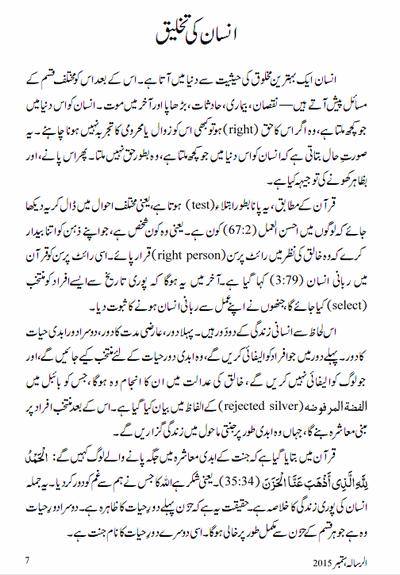ABDULLAH Bin Umar relates that the Noble Prophet (peace be upon him) said, “Just as iron catches rust on contact with water, so are the hearts rusted.” People asked, “How to remove the rust of the heart?” The Noble Prophet (peace be upon him) said, “By remembering death and by reciting the Qur’an.” (Baihaqi)
To err, it is said, is human. Though the statement contains some grains of truth, believers are enjoined to seek forgiveness from Allah, not to be content with the above dictum. This teaching aims at encouraging them to look forward to the Lord with hope on one hand, and on the other at purging their lives of sins. And this twofold teaching leads believers onto the path of spiritual advancement.
In another Hadith the Noble Prophet (peace be upon him) says that a person gets a black spot on the heart on committing a sin; another spot on committing another sin, and so on. And if the person sticks to life in sin unrepentantly, his heart darkens. When a believer happens to commit a sin, he repents and hastens to seek forgiveness from Allah, and as a result, the black spot on his heart caused by the sin is removed. The life of the Noble Prophet (peace be upon him) was in perfect accordance with the Will of Allah yet he used to seek forgiveness from Allah, at least 70 times a day.
The Hadith offers two prescriptions for a believer to cleanse the heart: remembering death and reciting the Holy Qur’an frequently.
To remember death means that man should think that this life is just a respite that would not be given to him for the second time to do good. So the more one remembers death, the more one will be able to realize the transient and ephemeral nature of this life on earth, do good to earn the pleasure of Allah, and thus come closer to Him.
Recitation of the Holy Qur’an means reading it correctly, understanding its meaning, and acting upon it. It also includes the propagation of the message of the Holy Book. Those who are not well-versed in the Arabic language should make efforts to understand the message of the Qur’an through its translation into their respective native languages as well as learn the language in the Holy Book was revealed in.



